What mood is that?
Last-minute panic."
~Calvin & Hobbes~
|
Established in 1959, The National Book Awards celebrates the best writing in America. Currently the Awards honors the best in Fiction, Nonfiction, Poetry, Translated Literature, and Young People’s Literature published each year. The winners are chosen by a panel of judges who select ten titles in each category, which is then narrowed to five Finalists, and a Winner is announced at the Awards Ceremony. Every year the Awards is an anticipated event for writers, publishers, and readers. Congratulations to the winners!! FICTION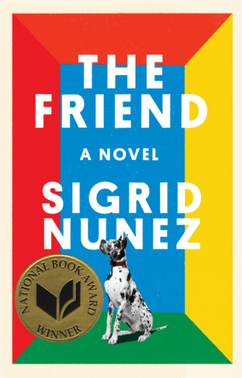 WINNER: The Friend by Sigrid Nunez When a woman unexpectedly loses her lifelong best friend and mentor, she finds herself burdened with the unwanted dog he has left behind. Her own battle against grief is intensified by the mute suffering of the dog, a huge Great Dane traumatized by the inexplicable disappearance of its master, and by the threat of eviction: dogs are prohibited in her apartment building. While others worry that grief has made her a victim of magical thinking, the woman refuses to be separated from the dog except for brief periods of time. Isolated from the rest of the world, increasingly obsessed with the dog’s care, determined to read its mind and fathom its heart, she comes dangerously close to unraveling. But while troubles abound, rich and surprising rewards lie in store for both of them. FINALISTS: A Lucky Man by Jamel Brinkley Florida by Lauren Groff Where the Dead Sit Talking by Brandon Hobson The Great Believers by Rebecca Makkai NONFICTION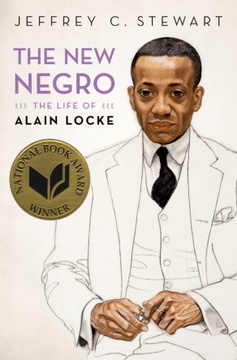 WINNER: The Negro: The Life of Alain Locke by Jeffrey C. Steward In The New Negro: The Life of Alain Locke, Jeffrey C. Stewart offers the definitive biography of the father of the Harlem Renaissance, based on the extant primary sources of his life and on interviews with those who knew him personally. He narrates the education of Locke, including his becoming the first African American Rhodes Scholar and earning a PhD in philosophy at Harvard University, and his long career as a professor at Howard University. Locke also received a cosmopolitan, aesthetic education through his travels in continental Europe, where he came to appreciate the beauty of art and experienced a freedom unknown to him in the United States. And yet he became most closely associated with the flowering of Black culture in Jazz Age America and his promotion of the literary and artistic work of African Americans as the quintessential creations of American modernism. In the process he looked to Africa to find the proud and beautiful roots of the race. Shifting the discussion of race from politics and economics to the arts, he helped establish the idea that Black urban communities could be crucibles of creativity. Stewart explores both Locke’s professional and private life, including his relationships with his mother, his friends, and his white patrons, as well as his lifelong search for love as a gay man. FINALISTS: The Indian World of George Washington: The First President, the First Americans, and the Birth of the Nation by Colin G. Calloway American Eden: David Hosack, Botany, and Medicine in the Garden of the Early Republic by Victoria Johnson Heartland: A Memoir of Working Hard and Being Broke in the Richest Country on Earth by Sarah Smarsh We the Corporations: How American Businesses Won Their Civil Rights by Adam Winkler POETRY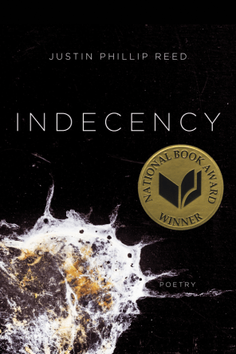 WINNER: Indecency by Justin Phillip Reed Indecency is boldly and carefully executed and perfectly ragged. In these poems, Justin Phillip Reed experiments with language to explore inequity and injustice and to critique and lament the culture of white supremacy and the dominant social order. Political and personal, tender, daring, and insightful―the author unpacks his intimacies, weaponizing poetry to take on masculinity, sexuality, exploitation, and the prison industrial complex and unmask all the failures of the structures into which society sorts us. FINALISTS: Wobble by Rae Armantrout American Sonnets for My Past and Future Assassin by Terrance Hayes Ghost Of by Diana Khoi Nguyen Eye Level by Jenny Xie TRANSLATED LITERATURE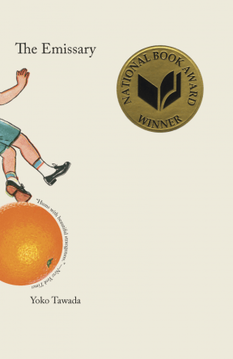 WINNER: The Emissary by Yoko Tawada Japan, after suffering from a massive irreparable disaster, cuts itself off from the world. Children are so weak they can barely stand or walk: the only people with any get-go are the elderly. Mumei lives with his grandfather Yoshiro, who worries about him constantly. They carry on a day-to-day routine in what could be viewed as a post-Fukushima time, with all the children born ancient—frail and gray-haired, yet incredibly compassionate and wise. Mumei may be enfeebled and feverish, but he is a beacon of hope, full of wit and free of self-pity and pessimism. Yoshiro concentrates on nourishing Mumei, a strangely wonderful boy who offers “the beauty of the time that is yet to come.” FINALISTS: Disoriental by Négar Djavadi; Translated by Tina Kover Trick by Domenico Starnone; Translated by Jhumpa Lahiri Flights by Olga Tokarczuk; Translated by Jennifer Croft Love by Hanne Ørstavik; Translated by Martin Aitken YOUNG PEOPLE'S LITERATURE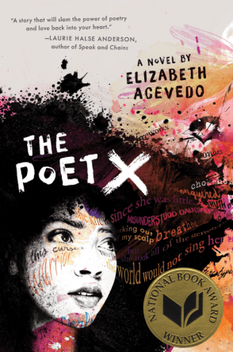 WINNER: The Poet X by Elizabeth Acevedo A young girl in Harlem discovers slam poetry as a way to understand her mother’s religion and her own relationship to the world. The Poet X is the debut novel of renowned slam poet Elizabeth Acevedo. Xiomara Batista feels unheard and unable to hide in her Harlem neighborhood. Ever since her body grew into curves, she has learned to let her fists and her fierceness do the talking. But Xiomara has plenty she wants to say, and she pours all her frustration and passion onto the pages of a leather notebook, reciting the words to herself like prayers—especially after she catches feelings for a boy in her bio class named Aman, who her family can never know about. With Mami’s determination to force her daughter to obey the laws of the church, Xiomara understands that her thoughts are best kept to herself. So when she is invited to join her school’s slam poetry club, she doesn’t know how she could ever attend without her mami finding out, much less speak her words out loud. But still, she can’t stop thinking about performing her poems. Because in the face of a world that may not want to hear her, Xiomara refuses to be silent. FINALISTS: The Assassination of Brangwain Spurge by M. T. Anderson; Illustrated by Eugene Yelchin The Truth as Told by Mason Buttle by Leslie Connor The Journey of Little Charlie by Christopher Paul Curtis Hey, Kiddo by Jarrett J. Krosoczka
0 Comments
|
Archives
February 2020
Categories
All
|
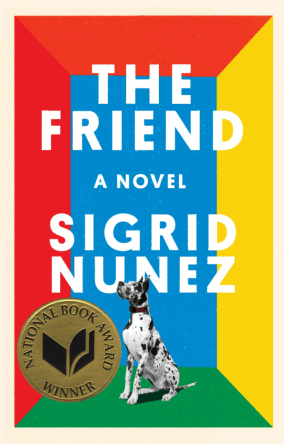
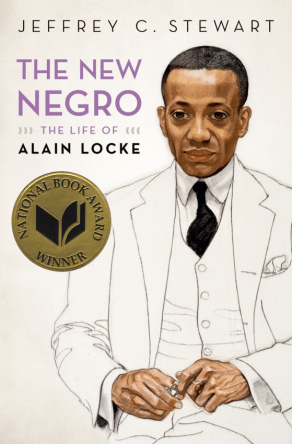
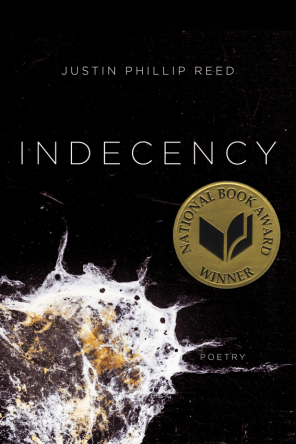
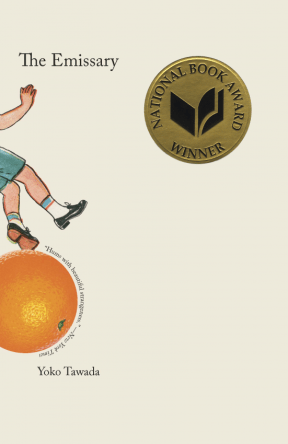
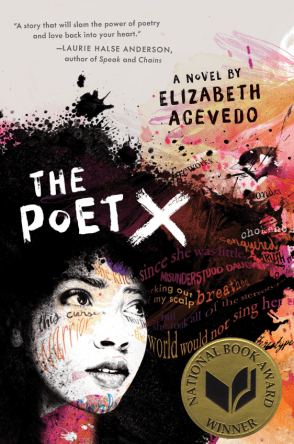
 RSS Feed
RSS Feed
